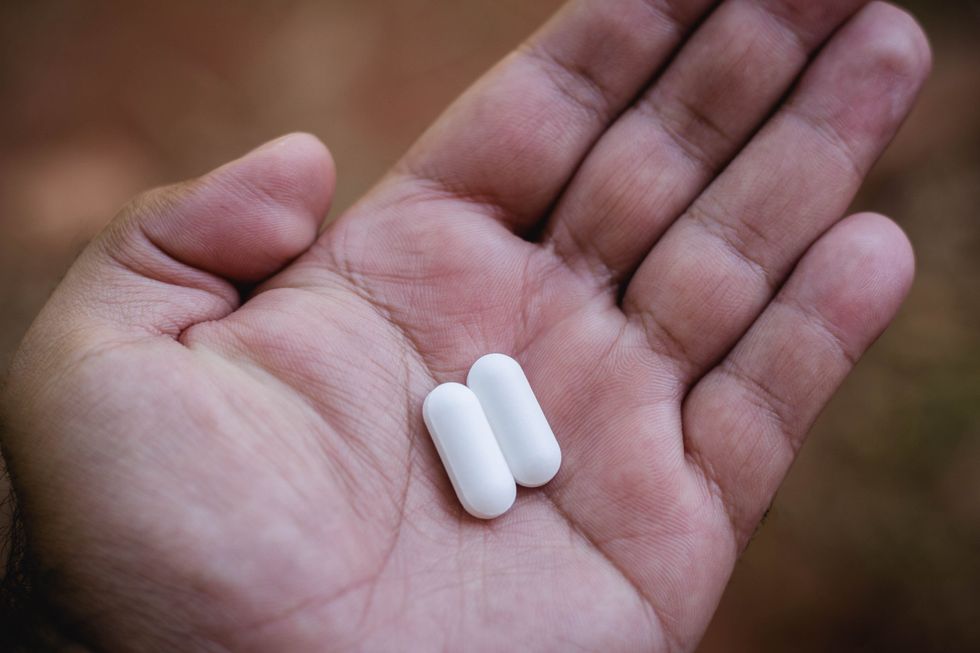Doctors push for cheaper cancer cures, but Big Pharma stands firm
Since Richard Nixon declared war on cancer in 1971, the National Cancer Institute has spent nearly $160 billion on research and treatment for this deadly disease. In addition to this, the convoluted Medicare, Medicaid, and insurance systems collectively pay out hundreds of billions annually for the same treatments, perpetuating the status quo. Despite spending far more than any other country, we are not seeing better results. Cancer rates are skyrocketing, including among young adults. With promising, cheaper alternatives available, why aren’t major medical journals and the government giving them the attention they deserve? Maybe the question answers itself. Deep down, we all understand why chronic illnesses seem to be rising alongside the use of costly treatments that don’t offer long-term solutions. A handful of heroic doctors who led the way on innovative COVID treatments have now published a peer-reviewed paper proposing a promising protocol for aggressive cancers. This protocol, published in the Journal of Orthomolecular Medicine, combines several antiparasitic drugs that are much safer and cheaper than typical cancer treatments: ivermectin, fenbendazole, and mebendazole. These same antiparasitic agents, which showed promise against COVID, also seem effective against many cancers by targeting the mitochondrial-stem cell connection, believed to be a key factor in the aggressive growth of cancer. Dr. William Makis, a Canadian oncologist and one of the lead authors, announced the publication on social media earlier this month. “The future of cancer treatment starts NOW,” Makis excitedly shared on behalf of the 15 authors from six countries. “My thanks to lead authors Ilyes Baghli and Pierrick Martinez for their incredibly inspired work, FLCCC’s Dr. Paul Marik for his extensive research on repurposed drugs, and every co-author who worked hard to bring this paper to life.” While obviously everyone undergoing cancer treatment must do their own research and speak to medical professionals they trust, here is the core of the Makis-Marik protocol in the paper: Ivermectin Low-grade cancers: Dose of 0.5 mg/kg, 3x per week (Guzzo, et al., 2002). Intermediate-grade cancers: Dose of 1 mg/kg, 3x per week (Guzzo, et al., 2002). High-grade cancers: Dose from 1 mg/kg/day (de Castro, et al., 2020) to 2 mg/kg/day (Guzzo, et al., 2002). All these doses have been established as tolerable for humans (Guzzo, et al., 2002). Benzimidazoles and DON Low-grade cancers: Mebendazole: Dose of 200 mg/day (Dobrosotskaya, et al., 2011). Intermediate-grade cancers: Mebendazole: Dose of 400 mg/day (Chai, et al., 2021). High-grade cancers: Mebendazole dose of 1,500 mg/day (Son, et al., 2020) or fenbendazole dose of 1,000 mg 3x per week (Chiang, et al., 2021). The protocol recommends these drugs alongside intravenous vitamin C, high-dose vitamin D, zinc, a ketogenic diet, fasting, and other lifestyle changes. Several studies support the use of ivermectin in treating cancer for helping cancer cells to die. It has shown promising results, especially in very deadly cancers like pancreatic cancer. Although the doses for cancer treatment (0.5 to 1 milligram per kilogram of body weight) are higher than those used for COVID, doctors point to studies that show these doses are safe for cancer patients. In one study, patients took one milligram per kilogram daily for 180 days without any harmful side effects. Mebendazole, along with its animal-use counterpart, fenbendazole, is another antiparasitic drug. It induces apoptosis in cancer cells by blocking microtubule formation and starving their growth by inhibiting glucose metabolism. The doctors mention several studies in which patients went into complete remission after following this regimen for several weeks. Between 2020 and 2022, 59% of peer reviewers received at least one payment from the pharmaceutical industry. So why aren’t the government, major pharmaceutical companies, and prestigious medical journals seizing this opportunity? These breakthroughs are often dismissed as being too new or lacking large sample sizes. Fine. Then why not fund a placebo-controlled clinical trial? We’re willing to spend billions on expensive therapies that often have extreme, life-altering side effects. These drugs, by contrast, are much cheaper and cause no harm. If even a 1% chance exists that this protocol could treat more cancers, why has this effort been left to a handful of independent doctors and low-profile medical journals? The questions, once again, answer themselves. A new research letter, surprisingly published in the Journal of the American Medical Association, revealed that between 2020 and 2022 (during the pandemic), 59% of peer reviewers received at least one payment from the pharmaceutical industry. Among 1,155 supposedly impartial reviewers, the total payments amounted to $1.06 billion — lining their pockets and potentially influencing their resea


Since Richard Nixon declared war on cancer in 1971, the National Cancer Institute has spent nearly $160 billion on research and treatment for this deadly disease. In addition to this, the convoluted Medicare, Medicaid, and insurance systems collectively pay out hundreds of billions annually for the same treatments, perpetuating the status quo.
Despite spending far more than any other country, we are not seeing better results. Cancer rates are skyrocketing, including among young adults. With promising, cheaper alternatives available, why aren’t major medical journals and the government giving them the attention they deserve? Maybe the question answers itself.
Deep down, we all understand why chronic illnesses seem to be rising alongside the use of costly treatments that don’t offer long-term solutions.
A handful of heroic doctors who led the way on innovative COVID treatments have now published a peer-reviewed paper proposing a promising protocol for aggressive cancers. This protocol, published in the Journal of Orthomolecular Medicine, combines several antiparasitic drugs that are much safer and cheaper than typical cancer treatments: ivermectin, fenbendazole, and mebendazole.
These same antiparasitic agents, which showed promise against COVID, also seem effective against many cancers by targeting the mitochondrial-stem cell connection, believed to be a key factor in the aggressive growth of cancer.
Dr. William Makis, a Canadian oncologist and one of the lead authors, announced the publication on social media earlier this month.
“The future of cancer treatment starts NOW,” Makis excitedly shared on behalf of the 15 authors from six countries. “My thanks to lead authors Ilyes Baghli and Pierrick Martinez for their incredibly inspired work, FLCCC’s Dr. Paul Marik for his extensive research on repurposed drugs, and every co-author who worked hard to bring this paper to life.”
While obviously everyone undergoing cancer treatment must do their own research and speak to medical professionals they trust, here is the core of the Makis-Marik protocol in the paper:
Ivermectin
Low-grade cancers:
Dose of 0.5 mg/kg, 3x per week (Guzzo, et al., 2002).
Intermediate-grade cancers:
Dose of 1 mg/kg, 3x per week (Guzzo, et al., 2002).
High-grade cancers:
Dose from 1 mg/kg/day (de Castro, et al., 2020) to 2 mg/kg/day (Guzzo, et al., 2002).
All these doses have been established as tolerable for humans (Guzzo, et al., 2002).
Benzimidazoles and DON
Low-grade cancers:
Mebendazole: Dose of 200 mg/day (Dobrosotskaya, et al., 2011).
Intermediate-grade cancers:
Mebendazole: Dose of 400 mg/day (Chai, et al., 2021).
High-grade cancers:
Mebendazole dose of 1,500 mg/day (Son, et al., 2020) or fenbendazole dose of 1,000 mg 3x per week (Chiang, et al., 2021).
The protocol recommends these drugs alongside intravenous vitamin C, high-dose vitamin D, zinc, a ketogenic diet, fasting, and other lifestyle changes.
Several studies support the use of ivermectin in treating cancer for helping cancer cells to die. It has shown promising results, especially in very deadly cancers like pancreatic cancer. Although the doses for cancer treatment (0.5 to 1 milligram per kilogram of body weight) are higher than those used for COVID, doctors point to studies that show these doses are safe for cancer patients. In one study, patients took one milligram per kilogram daily for 180 days without any harmful side effects.
Mebendazole, along with its animal-use counterpart, fenbendazole, is another antiparasitic drug. It induces apoptosis in cancer cells by blocking microtubule formation and starving their growth by inhibiting glucose metabolism. The doctors mention several studies in which patients went into complete remission after following this regimen for several weeks.
Between 2020 and 2022, 59% of peer reviewers received at least one payment from the pharmaceutical industry.
So why aren’t the government, major pharmaceutical companies, and prestigious medical journals seizing this opportunity? These breakthroughs are often dismissed as being too new or lacking large sample sizes. Fine. Then why not fund a placebo-controlled clinical trial? We’re willing to spend billions on expensive therapies that often have extreme, life-altering side effects. These drugs, by contrast, are much cheaper and cause no harm. If even a 1% chance exists that this protocol could treat more cancers, why has this effort been left to a handful of independent doctors and low-profile medical journals?
The questions, once again, answer themselves. A new research letter, surprisingly published in the Journal of the American Medical Association, revealed that between 2020 and 2022 (during the pandemic), 59% of peer reviewers received at least one payment from the pharmaceutical industry. Among 1,155 supposedly impartial reviewers, the total payments amounted to $1.06 billion — lining their pockets and potentially influencing their research.
Now, consider competing products on the market for various ailments like Parkinson’s, cancer, diabetes, and heart disease. On one side, you have potential treatments from cheap repurposed drugs; on the other, expensive new drugs that ravage the body with side effects but enrich the pharmaceutical industry. These expensive drugs create a cycle of chronic illness, failed treatments, and side effects, each reinforcing the need for more drugs. Given this conflict of interest, which treatment do you think will make it past the gatekeepers in major medical journals?
Deep down, we all understand why chronic illnesses seem to be rising alongside the use of costly treatments that don’t offer long-term solutions. In 2022, Yale researchers analyzed the association between cancer care expenditures and age-standardized cancer mortality rates across 22 wealthy Western countries in 2020. Their findings, published in JAMA, showed that despite America spending $584 per capita on cancer care — more than any other nation and double the median spending of the other 21 countries — “cancer care spending was not associated with age-standardized cancer mortality rates.”
Cancer rates are now skyrocketing in America and other Western countries, including aggressive, hard-to-treat cancers in young adults. From 2019 to 2023, cancers have surged among individuals ages 15-44 in the following categories: uterine cancer (up 37%), colorectal cancer (up 17%), liver cancer (up 8%), and unspecified metastatic cancer (up 14%).
Earlier this year, the American Cancer Society noted that in the late 1990s, colorectal cancer was the fourth-leading cause of cancer deaths among men and women younger than 50. Today, it has become the No. 1 killer of men under 50. In Great Britain, cancer rates hit a record high in 2022, with prostate cancer being the most diagnosed and particularly deadly.
Why aren’t alarm bells sounding in the oncology field, recognizing that current approaches clearly aren’t working?
We don’t yet know how broadly successful an ivermectin/mebendazole-based cancer treatment protocol could be for the general population. The trouble is we may never find out. If such a protocol were to emerge from the gatekeeping medical journals, the very entities funding those journals would stand to lose billions in revenue. That moral hazard is one humanity cannot afford to ignore.
Originally Published at Daily Wire, World Net Daily, or The Blaze
What's Your Reaction?

































































































